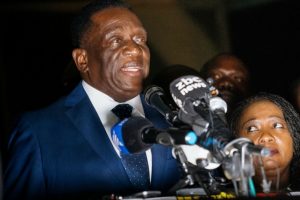Zimbabwe’s lack of regard for property rights has been weighing down the country’s economy for more than two decades, a United States economics professor said on Tuesday.
Making a presentation during the US Embassy Food For Thought session in Harare, Craig Richardson said Zimbabwe’s economy took a downward turn of -20 percent growth during the land reform programme.
Zimbabwe embarked on to the land reform programme at the turn of the millennium, which turned out violent and disrupted the agricultural sector and the economy at large.
Richardson said land leases hinder growth adding that when citizens have full rights over their land, the economy tends to grow.
“Zimbabwe’s 99-year leases are not transferable. It makes it difficult for farmers to develop the areas. Worse, the government reserves the right to withdraw the lease,” Richardson said.
“Everywhere in the world, there is a cost of having complicated property rights. And for Zimbabwe, the cost has been lack of development.”
A 99-year lease is a legally binding agreement between the government and land holders.
Richardson said the agreement was not transferable so the lessees have limited decision-making powers over the properties.
“Free titled land allows for greater expansion,” he said.
Land is a sensitive issue in Zimbabwe and, for more than two decades, the country has embarked on land expropriation without compensation, sparking worldwide condemnation for lack of regard for property rights.
However, in February, President Emmerson Mnangagwa told the Financial Times that his administration was prepared to respect property rights and promised to make 99-year leases transferable.
– African News Agency (ANA)



